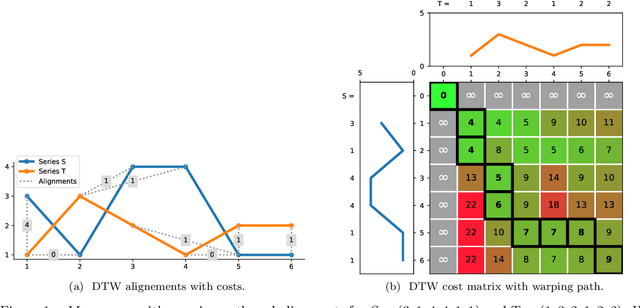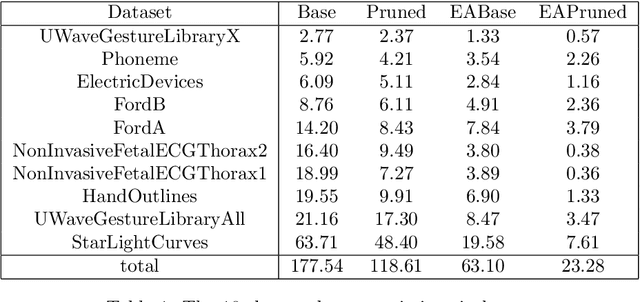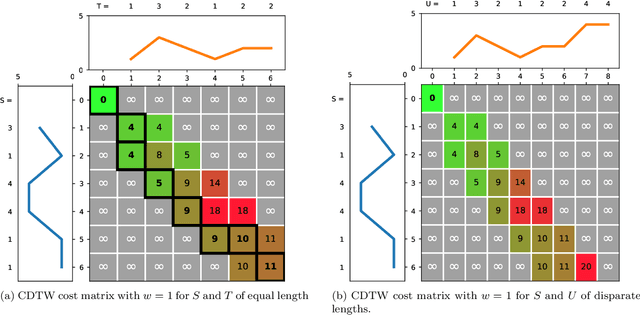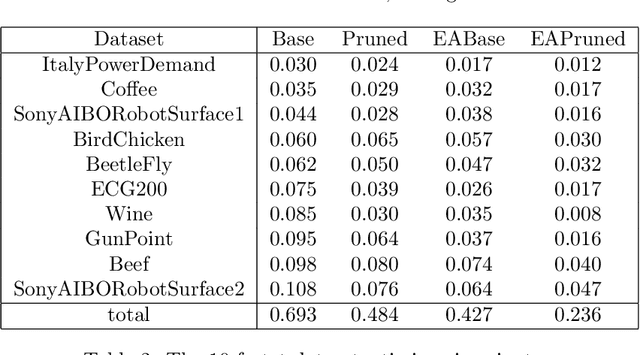Early Abandoning and Pruning for Elastic Distances
Paper and Code
Feb 10, 2021



Elastic distances are key tools for time series analysis. Straightforward implementations require O(n2)space and time complexities, preventing many applications from scaling to long series. Much work hasbeen devoted in speeding up these applications, mostly with the development of lower bounds, allowing to avoid costly distance computations when a given threshold is exceeded. This threshold also allows to early abandon the computation of the distance itself. Another approach, developed for DTW, is to prune parts of the computation. All these techniques are orthogonal to each other. In this work, we develop a new generic strategy, "EAPruned", that tightly integrates pruning with early abandoning. We apply it to DTW, CDTW, WDTW, ERP, MSM and TWE, showing substantial speedup in NN1-like scenarios. Pruning also shows substantial speedup for some distances, benefiting applications such as clustering where all pairwise distances are required and hence early abandoning is not applicable. We release our implementation as part of a new C++ library for time series classification, along with easy to usePython/Numpy bindings.
 Add to Chrome
Add to Chrome Add to Firefox
Add to Firefox Add to Edge
Add to Edge